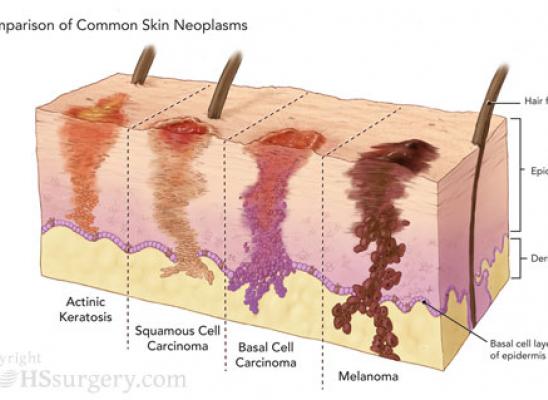Sometimes I Don’t Even Know I’m Picking!

Online test
Find out the severity of your symptoms with this free online test
Sound familiar? If so, you’re not alone. Many people who live with compulsive skin picking, clinically known as excoriation disorder or dermatillomania, find themselves picking without even realizing it. It’s a phenomenon sometimes referred to as “trance picking”. It’s a style of picking that happens in a state of dissociation, kind of like being on autopilot, when awareness of the behavior is startlingly absent. If you’ve ever come out of a picking episode, suddenly noticing fresh wounds, you may have experienced this type of picking.
Understanding Picking Styles
Skin picking disorder is typically characterized by two main styles of picking: focused and automatic (state-based).
Focused picking is intentional and occurs within one’s awareness:
- Picking is in response to an urge
- Triggered by stress, anxiety, boredom, or tension
- Physical sensation precedes picking, such as tingling, discomfort, or an itch
- May begin with a goal of correcting a skin imperfection
- After picking, a person may feel relieved or pleasure, but the urge to pick returns
Automatic picking unfolds outside of your awareness:
- Picking occurs without being aware of the behavior
- Tends to occur in response to boredom or lack of attention or focus
- Often described as being in a “trance” or “zoning out” only to later discover they’ve been picking without any active intent or memory of the event.
It is estimated that about 68% of people with skin picking disorder experience these trance-like episodes of dissociation. And some people experience both focused and automatic picking styles.
Dissociation: The Underlying Disconnection
Dissociation is a disruption or disconnection in the normal integration of one’s consciousness, memory, perceptions, emotions, behaviors, and sense of self. It’s a phenomenon that is associated with a number of disorders, but dissociation happens in everyday life too. If you’ve ever gotten completely “lost” in a book or caught yourself daydreaming, you may have experienced mild dissociation.
In the context of skin picking, dissociation means that the picking happens while your mind is elsewhere. That might be from boredom, watching TV, lost in thought, or under emotional strain. During these episodes, the brain’s executive functions like decision-making and self-control, go “offline” and its habitual motor pathways take over, bypassing the conscious intention and self-monitoring.
States, Traits, and Dissociation
This trance-like picking is considered to be state-based, meaning it is driven by emotions in the moment rather than being something that is ever-present and across situations (trait-based).
Traits are patterns of thinking, feeling, and behaving that are unique to each individual. These traits generalize across situations and tend to remain fixed and stable across time. For example, introversion is a trait of personality that tends to be stable over time.
States, on the other hand, are patterns of thinking, feeling, and behaving in a specific situation at a given moment in time. Unlike traits, they vary across time and situations you find yourself in. Your mood – happy, sad, bored, anxious - at any given moment would be an example of a state. Your mood will change over time and in response to your experiences. So, for some, mood seems to play a key role in whether they experience dissociative episodes.
While it can be problematic, dissociation is also thought to be a defense mechanism. For someone struggling with a difficult or traumatic experience, it may serve as a safe way to detach psychologically from events that are too overwhelming to cope with. While not everyone who has skin picking has also been exposed to significant trauma, research suggests that dissociation may mediate the relationship between these experiences and skin picking, providing some psychological protection.
The Experience of Dissociative Skin Picking
For people who experience this state-based or dissociative skin picking, it’s not uncommon to feel confused, frustrated, or even ashamed. It can feel like you have no control over your own body, and this disconnection can be quite distressing.
It’s important to remember that this phenomenon is not simply a lack of willpower. It is a complex psychological process that engages brain systems that affect habit formation, emotional regulation, and inhibition. Negative emotions (states) such as anxiety or sadness may act as subtle triggers. The picking becomes a form of emotional escape, temporarily reducing feelings of tension, boredom, or emotional distress.
Breaking the Cycle
Breaking the cycle of dissociative picking is possible. The key to making change begins with understanding the way your dissociative picking unfolds. Keeping a “picking diary” can help you reflect on your experiences:
- Do the episodes come on suddenly or gradually?
- What do you think triggers these episodes?
- Where are you when they happen?
- What emotions are you struggling with or not understanding?
Practices such as mindfulness and grounding techniques can help increase your awareness in the moment, making it easier to catch yourself before or as you begin to pick.
Therapy can also be very effective in managing picking behavior. Habit Reversal Training (HRT) can help you manage the behavioral component of picking. Approaches like Cognitive Behavioral Therapy (CBT) and Acceptance and Commitment Therapy (ACT) can be highly effective in addressing the underlying emotional issues that can trigger picking.
You Are Not Alone
If you find yourself picking in states of dissociation, it’s not a lack of willpower. It’s a reflection of the complex ways our mind manages emotional stress. It’s a meaningful piece of your experience and understanding it can be an important component of your recovery.
If you’re dealing with dissociative picking, there is help. SkinPick therapists can help you learn to manage your skin picking and help you step onto the road to healing. And online therapy is effective and convenient. You can see a therapist when and how it works best for you. Change is possible and SkinPick is here to help.
References
1. Gallinat, C., Stürmlinger, L. L., Schaber, S., & Bauer, S. (2021). Pathological skin picking: Phenomenology and associations with emotions, self-esteem, body image, and subjective physical well-being. Frontiers in Psychiatry, 12. https://www.frontiersin.org/articles/10.3389/fpsyt.2021.732717/full
2. Dissociative disorders. (n.d.). DSM Library. https://dsm.psychiatryonline.org/doi/full/10.1176/appi.books.9780890425787.x08_Dissociative_Disorders
3. Schmitt, M., Blum, G.S. (2020). State/Trait Interactions. In: Zeigler-Hill, V., Shackelford, T.K. (eds) Encyclopedia of Personality and Individual Differences. Springer, Cham. https://link.springer.com/referenceworkentry/10.1007/978-3-319-24612-3_1922
4. Kłosowska, J., Antosz-Rekucka, R., Kałużna-Wielobób, A., & Prochwicz, K. (2021). Dissociative experiences mediate the relationship between traumatic life events and types of skin picking. Findings from non-clinical sample. Frontiers in Psychiatry, 12. https://www.frontiersin.org/journals/psychiatry/articles/10.3389/fpsyt.2021.698543/full
5. https://www.reddit.com/r/CPTSD/comments/a18rq7/does_anyone_pick_at_their_skin_when_they/
Online test
Find out the severity of your symptoms with this free online test
Start your journey with SkinPick
Take control of your life and find freedom from skin picking through professional therapy and evidence-based behavioral techniques.
Start Now



